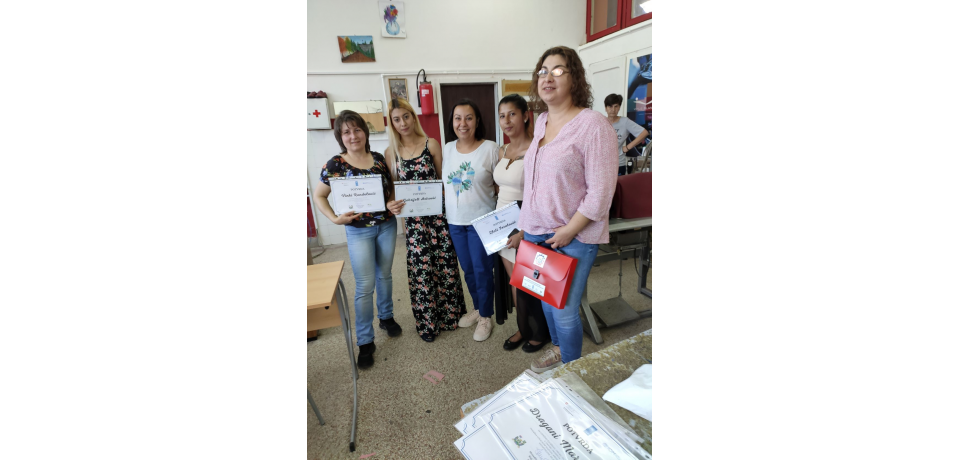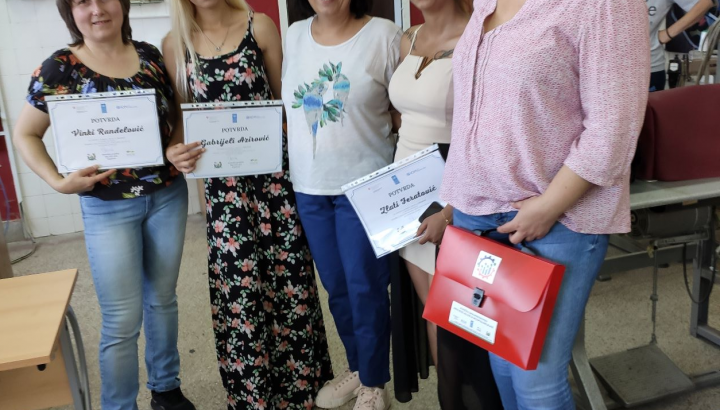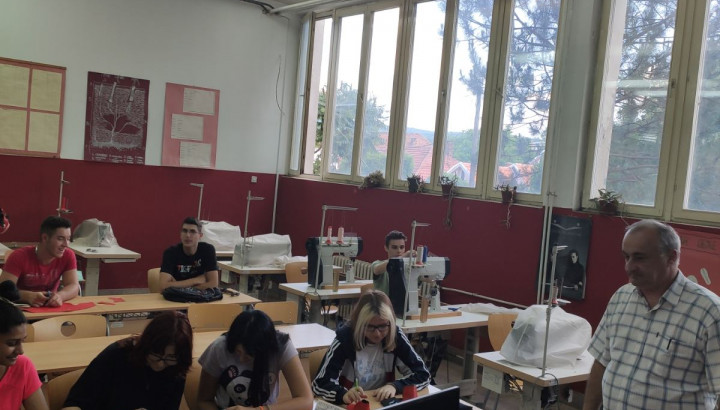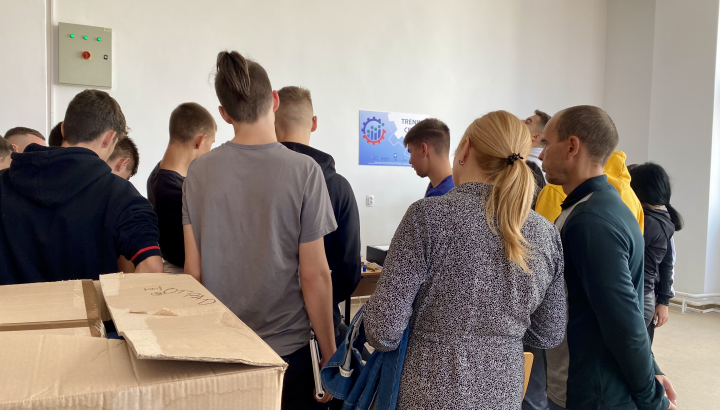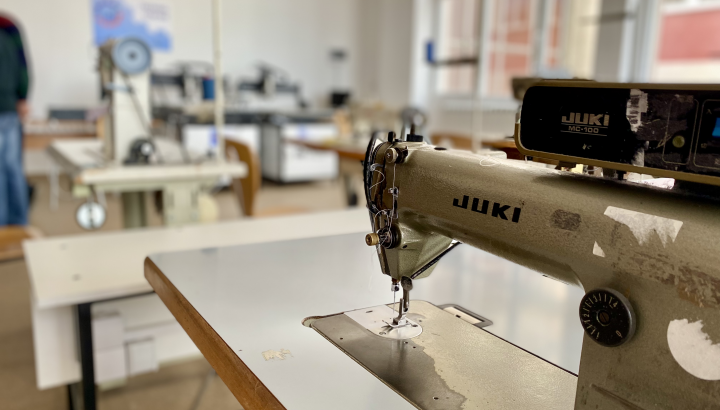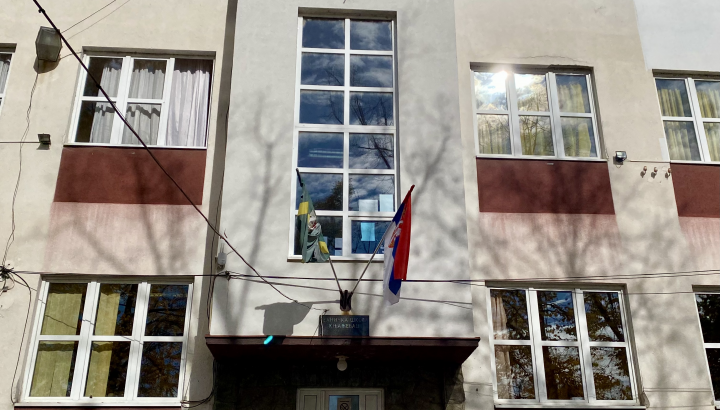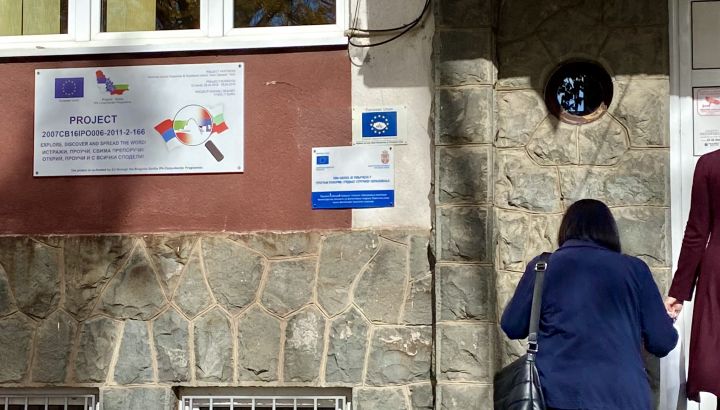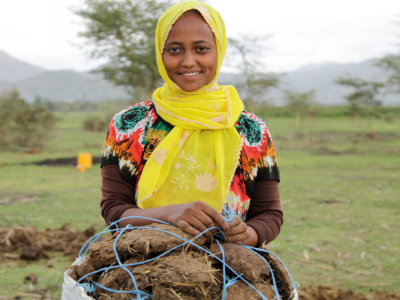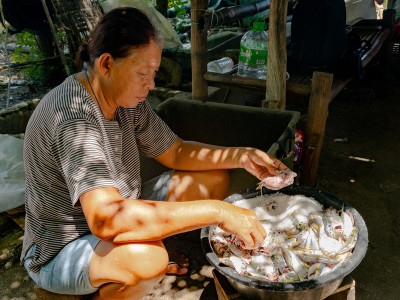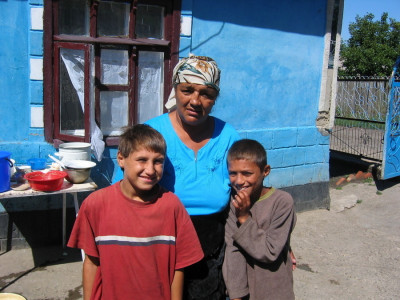Support local development through new services for unemployed youth, Knjaževac
Monika Petrovic, IOM Serbia, mpetrovic@iom.int
Jelena Maric Lukovic, UNDP Serbia, jelena.maric.lukovic@undp.org
Related Sustainable Development Goals and Global Compact for Migration Objectives
Summary
The small city in Southern Serbia, Knjaževac, faces a challenge: depopulation and slowing development, because young people are moving from rural areas to bigger cities or are leaving the country entirely. Some of the villages on the outskirts of town or in the remote mountain villages have become ghost towns, while others only have one or two elderly residents. In the main city, young people are looking for reasons to stay.
The COVID-19 pandemic has only exacerbated these existing problems as there is no new labour force to compensate for reductions in the labour market, mainly because the education system does not provide such educational profiles thus leading to a mismatch in supply and demand in the local community.
As part of the IOM-UNDP Global Programme on Making Migration Work for Sustainable Development, the project will replicate some of the successful measures implemented by the local self-government and work with them to support youth employability (supply side), increase job opportunities (demand side), and improve migration management (governance) at the local level. On a larger scale, the project will contribute to national development priorities in terms of reducing youth migration and "brain drain", and to develop better policies that support professional and vocational training and development of youth, as well as contribute to better conditions for their return. Overall, the project will enhance employability among youth most prone to unemployment i.e., those who are Not in Education, Employment or Training (NEET), dropouts, family members of returnees and Roma minority youth from rural areas and women.
Key objective
The project will contribute to the socio-economic development among youth, particularly the Roma population, in the municipality of Knjaževac through the improvement of local employability.
Projects like this one aim to provide opportunities to young people in their hometowns, so that migration is no longer their only path forward but is instead a choice. By addressing SDG 1 (no poverty), SDG 4 (quality education) and SDG 8 (decent work), the hope is that more people will remain in Knjaževac and continue to see its economy and social bonds thrive. The project better links local educational opportunities and skills development to the needs of local employers, aligning the supply and demand sides of the local labour market and boosting the local economy more broadly.
Main activities
- Organizing technical training to young unemployed persons on specific skills that meet local industry demand;
- Supporting establishment of training centers for machinery practice and theoretical exercises for the youth and conducting training for local mentors on using specific VET methodology to effectively support youth;
- Conducting awareness raising campaign among youth on accessing training center services and assistance, incl. film production;
- Developing, adopting, implementing and monitoring local protocol and procedures for supporting employment of young people from vulnerable groups.
- An event “Exhibition of Products from Vocational Training” was held on 30 September 2022. It provided an opportunity for various stakeholders to meet the young participants of the training and to see their work produced during the training. The event had a screening session of a promotional film produced by the Local Self-Government and partners to raise awareness among youth about how they can access employment and training services.
- Promoting the project among young people in LSG Knjaževac, especially among the Roma population through social networks, conducting press conferences, informing young people through social networks of partners, producing and publishing promotional videos in digital media platforms.
Key successes or innovative factors, good practices and lessons learned (if available)
- The Municipality of Knjaževac has created tools that institutionalize horizontal cooperation at the local level by defining ways to support and include young unemployed people in Knjaževac through the services provided by the Training Center. This set of tools aimed at supporting unemployed youth include the Agreement on Cooperation between Key Actors (the Knjaževac Municipality, the National Employment Service and the Technical School), Rules of Procedure of the Training Centre and the Application Form for Training Beneficiaries.
- A Training Centre has been established at the Technical School for both machinery practices and theoretical exercises. The training center is built into the local technical high school, which ensures the sustainability of the project. 3 CNC machines and 10 sewing machines for practical training were provided to the Training Centre through the project, so that the equipment can be used for future training long after this particular Programme ends.
- The project encourages the participation of youth from the Roma community. This inclusive approach promotes social coherence and integration of Roma returnees. A promotional film was produced by the Local Self-Government and partners to raise awareness among youth about how they can access employment and training services.
- The mix of both practical and theoretical training, tailored to the real experiences and skills that a job will require, were cited as a positive success factor for the success of the training, as it ensured that graduates had real-world experience fit for their future employment.
- Training is fully funded. This makes youth participation feasible in the current challenging economic and unemployment environment.
See the latest blog about Knjaževac's good approach.
See the case study on youth, employment and education in English and Serbian, with programming tips and stories.
See the case study on co-creating and empowering youth, Roma and migrants to develop solutions and policies jointly with governments in English and Serbian, with programming tips and stories.
Beneficiaries
Direct beneficiaries:
- As of November 2022, nearly 70 beneficiaries completed skill training: around 40 youth were trained in tailoring and sewing (8 men and 30 women) and around 30 youth were trained in Computer Numerical Control (CNC) (19 men and 13 women).
- 5 young people got a job after completing the training.
- 5 local mentors are supporting young people during their vocational training and benefited from a three-day training on mentorship skills.
- The project continues working towards supporting 200 unemployed young people under the age of 30 who are internal, potential, return or labour migrants.
- 4 institutions/organizations are involved (Technical School Knjaževac representatives; Centre for Social Work representatives; Local coordinator for Roma issues; Local CSOs dealing with issues of Roma/marginalized and vulnerable groups)
- 20 local companies
Indirect beneficiaries
- 30 local companies
- Branch of the National Employment Service (NES)
- Regional Chamber of Commerce,
- Local Agency for Development of Municipality Knjaževac (ARK)
- Sub-contractors
See the draft Serbia results fiche in English and Serbian for more information (to be finalized at the end of the Programme in 2023).
